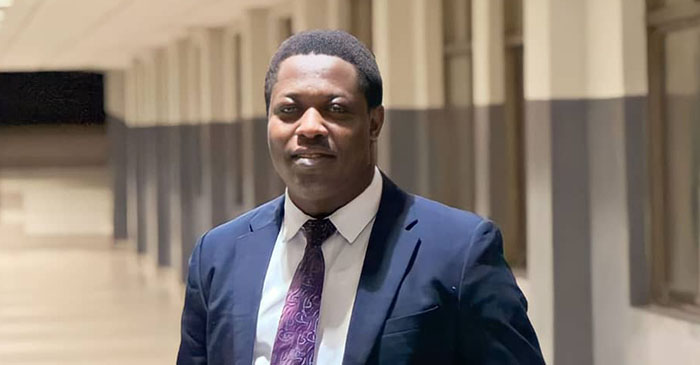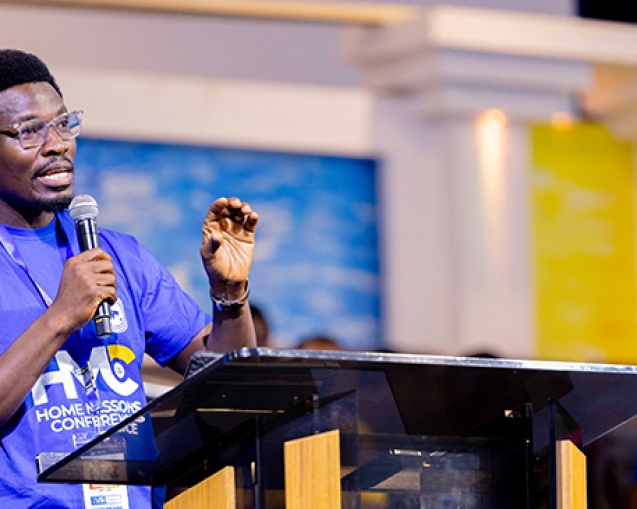The apostle Paul had to point out Timothy’s spiritual legacy. It was a vital part of who he was. It helped shape him as a man, a Christ-follower, and an emerging apostle. Timothy’s actions prompted Paul to write, “I am reminded of your sincere faith, which first lived in your grandmother Lois and in your mother Eunice and, I am persuaded, now lives in you also” (2 Tim. 1:5).
Young Timothy became the recipient of a trans-generational legacy. Two generations of praying women shaped him from the inside out. Timothy’s home life, created by the faith of his grandmother and mother, left an indelible mark on him. His grandma and mom were praying women, and their behavior shaped his. The stark reality is you cannot take someone where you’ve never been yourself. To raise praying children means that you must first have a measure of proficiency yourself. In the book “No Easy Road” by Dick Eastman, it says: “To learn prayer, we must pray. We only learn prayer’s deepest depths in prayer, not from books. We reach prayer’s highest heights in prayer, not from sermons.”
Eastman’s observation is not isolated. E. M. Bounds, the prolific author of numerous books on prayer, notes: “Prayer is a trade to be learned. We must be apprentices and serve our time at it. Painstaking care, much thought, practice, and labor are required to be a skillful tradesman in praying.” Would you attempt to teach your child to swim if you were uncomfortable in the water?
Susanna Wesley, the mother of John and Charles Wesley—founding brothers of the Methodist Church—had nineteen children. Seldom did she miss a daily hour of prayer. Even with the stress and time commitment of mothering, she made time to be with God. She had no private room or dedicated space in which to go and seek the Lord. Yet that didn’t stop her. This habit made it easy for her to model prayer to her kids. Eastman documents Susanna’s practice like this: “At her chosen time for spiritual exercise, she would take her apron and pull it over her face. Her children were instructed never to disturb ‘mother’ when she was praying in her apron.”
The sight of a praying parent leaves a huge impression on the soul of a child. It trumps any verbal instruction that you’ll ever give to your little one on prayer. This observation caused leading pastor and author Rick Warren to say: “A dad stands tallest when he kneels to pray with his children.”
Susanna Wesley taught each of her children the Lord’s Prayer (Matt. 6:9–12) as soon as they could speak. She made them recite it twice daily: when they woke and again at bedtime. As they got older, she added other elements to their prayer regimen. They would be taught to pray for their parents and some of the promises found in the Bible. This was all based on their stage of development and ability to memorize.
Admittedly, we’re living in a different era with different cultural norms and expectations. But as Christians, we should never veer from this parental target: “Train up a child in the way he should go, and when he is old, he will not depart from it” (Prov. 22:6).
The Message puts it this way: “Point your kids in the right direction—when they’re old, they won’t be lost.” We cannot cave in to popular culture that suggests that we leave our children to form their own opinions about God, about faith, or about prayer. God demands us to take on the role of a teacher—a teacher of prayer. We come full circle to my point: to raise a child who prays, you must be a “pray-er”!
In fact, author and teacher Mark Batterson writes: “Prayer turns ordinary parents into prophets who shape the destinies of their children, grandchildren, and every generation that follows.” You don’t have to be a perfect parent, but be a praying parent! God’s involvement with the rearing of your child will fill in the parenting gaps that you were unable to perform.
JESUS, THE PRAYING CHILD
Before there was a cross, there was a cradle. Jesus did not skip steps on the way to the cross. He had to progress through all of the ordinary, yet necessary, stages of human development. Scholars use the terms “very God” and “very man” to describe the unique nature of Jesus. He was totally God while at the same time totally man. His humanity did not take away from His divinity. His divinity did not suppress or deny His humanity. In fact, being human enabled Jesus to sympathize with our weaknesses, as our High Priest (Heb. 4:15). He accurately and compassionately brings our suffering before God’s throne of grace.
Jesus’s prayer life had a starting point, just like yours, mine, and our children’s. Jesus was a baby, a preteen, a teenager, and a young adult before He made His mark on the world as an adult. The Bible gives us little bits and pieces of His life prior to adulthood. We have enough to form this conclusion: God does not wait until you’re an adult to respond to your prayers.
- Jesus, the Twelve-Year-Old Prayer Warrior
At the age of twelve, Jesus understood the importance and value of prayer. He participated in prayer—His Father’s business—and other spiritual matters. Jesus made that point very clear to His earthly parents. Unbeknownst to Mary and Joseph, on their return trip home from the annual Feast of the Passover, Jesus stayed behind. Like all parents, when they realized He was not in the caravan with any of the other families, they returned to Jerusalem in search of their little boy. When they found Him, Jesus respectfully said: “Why were you searching for me? . . . Didn’t you know I had to be in my Father’s house?” (Luke 2:49, NIV).
What did Jesus mean by this? What was this twelve-year-old doing? The answer is found when we understand what occurs in the temple. Years later, as an adult, Jesus said: “My house shall be called a house of prayer for all nations” (Mark 11:17, emphasis added). Jesus used the terms “My house” and “My Father’s house” (John 2:16) interchangeably. Both terms reference the temple as a place of prayer, among other religious activities. Without reading anything into the text, we can easily see that Jesus prayed as a child. If the Father valued, respected, and answered Jesus’s prayers while a child, God also values the prayers of your children.
- The influence of Mary and Joseph
As parents, Mary and Joseph created a certain home environment, family culture, and expectation about Jesus. Even if their influence on Him was limited, flawed, or partial, they still played a role in His spiritual development. Joseph was a carpenter (Matt. 13:55). Jesus became a carpenter (Mark 6:3). Jewish boys, in those days, went into the same line of business as their father. Becoming a carpenter was no accident. We know that parental influence was at work in Jesus’s life. It didn’t stop at His vocational choice. It extended into the whole, of His life.
The religious practices of Mary and Joseph are without question. When Jesus was eight days old, like any good Jewish parents, they had Him named and circumcised (Luke 2:21). At the appropriate time, they traveled to Jerusalem to dedicate Him to God, in accordance with the Law of Moses (Luke 2:22). Every year, Mary and Joseph faithfully went to Jerusalem to celebrate the Feast of the Passover (Luke 2:41). It was during one of these annual visits that Jesus, at twelve years old, remained behind to pray and attend to His “Father’s house.”
The Bible doesn’t detail all the things Jesus learned from the godliness of His parents. Even in their limited knowledge, imperfect lifestyle, and inadequacies in raising the Savior, they still played a critical part. Your role in the spiritual development of your child is invaluable. You cannot deflect it back to God. You cannot claim that your inadequacies disqualify you. Even if they do, you still cannot abdicate your role as an influencer. You can’t even say: “My parents didn’t teach me how to pray. Therefore, I lack the tools to teach my child.” None of these excuses hold water even if they are true.
Your home is the number one influence in the life of your child. The average church has a child one percent (%) of his time, and the school for sixteen percent (16%), but the home for eighty-three percent (83%) of his time. This reality does not eliminate or reduce the need for churches or Christian schools to serve as positive spiritual training centers for your child, but it establishes the fact that your home dominates your child’s world, and you have an opportunity to maximize that benefit. You must, therefore, take your role seriously!
Written by Elder Johnson Nyormah (Pentecost University)


















